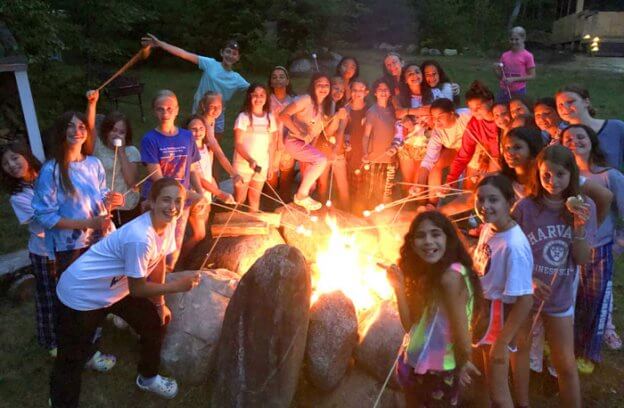It’s important to remember that the transition into a sleepaway camp environment can be difficult for both campers and parents. It’s our job to help ease that transition by providing a comforting and supportive environment for all involved. Below are some time tested strategies to make sure our campers and parents make a smooth transition here at Birchmont.
Partnership between camp and home: Providing consistent and united messaging between home and camp are essential for building a camper’s trust and setting them up to succeed and enjoy their new home away from home. Our message should always be that camp is going to be a fun, safe, and positive place for campers to spend their summer. It may be normal to miss home at first, but that will pass. It’s also OK to miss home and still have a great experience at camp! Avoid being guilted into “making deals” to pick a camper up if they don’t like it at first; this will often prevent a child from giving the experience a chance. The best answer to these kinds of questions or requests in the lead up to camp is: “I spent a lot of time making sure Birchmont was the perfect camp for you. I know you will have an amazing time. We are committed to X weeks and then you will be home before you know it!”
Set expectations: We are always clear with campers and parents about what to expect at camp. Going over the camp handbook together and explaining the daily routine, rules, and expectations for behavior help let everyone know what to expect. This can help reduce anxiety and ensure that everyone is on the same page.
Create a welcoming environment: We ensure that our campers feel welcomed from the moment they arrive at camp. We always greet them with a smile and show genuine interest in getting to know them. Our cabins are clean and organized and equipped with everything they need to feel comfortable.
Encourage participation: Once campers begin to participate in activities and make new friends, homesickness fades very quickly. From the moment our campers arrive, we intentionally structure opportunities for campers to bond with their cabin mates and participate in group activities. This can help build a sense of community and make campers feel more comfortable and at home quickly.
Communication with parents: Our team is available during camp to let our parents know how their child is doing. We also provide daily pictures to give everyone at home a glimpse into daily camp life. A weekly phone call is provided to help ease any worries parents may have and keep them informed about what their child is experiencing at camp.
Provide support: We are always available to campers and parents if they have questions or concerns. We will listen actively and provide honest and transparent feedback when needed. If a camper is feeling homesick, we always offer extra support and encourage them to talk about their feelings with us so we can help them navigate these perfectly normal feelings.
Be flexible: We understand that not all campers will adapt to the sleepaway camp environment at the same pace. We understand this and provide additional support as needed. We will also facilitate connections where experienced campers can help newer campers adjust to camp life.
With these strategies in mind, camp and home can work together to create a very positive camp experience for everyone involved!
 Camp Birchmont
Camp Birchmont

